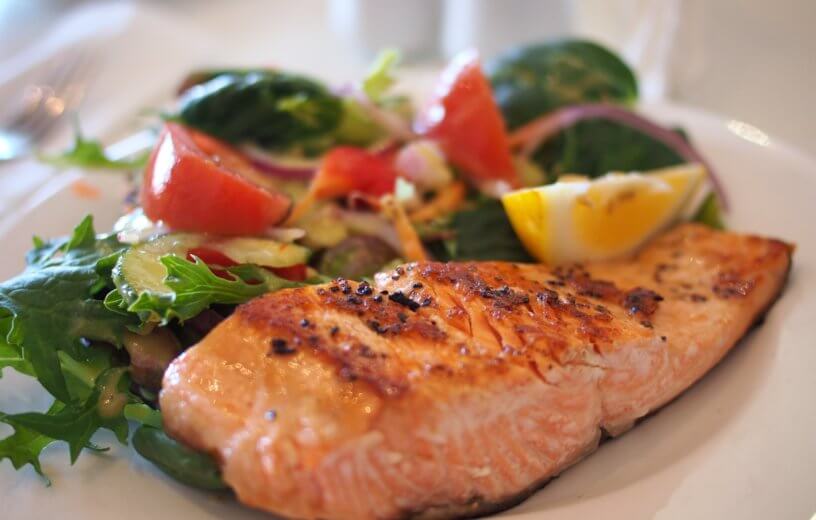DALLAS — Omega-3 carries many health benefits, and a new review suggests eating three grams of it per day is enough to lower your blood pressure. The findings include omega-3 fatty acids obtained from food or dietary supplements.
“According to our research, the average adult may have a modest blood pressure reduction from consuming about 3 grams a day of these fatty acids,” says Xinzhi Li, MD, PhD, assistant professor and program director of the School of Pharmacy at Macau University of Science and Technology in China, in a media release.
Omega-3 fatty acids are an abundant nutrient in fatty fish such as sardines and salmon, though dietary supplements also work to achieve its health effects. While much research connects omega-3s with increased cognition, their relationship to blood pressure is less clear. Some studies have linked omega-3 fatty acids with low blood pressure, though the evidence is inconclusive.
The average fish oil supplement carries an average of 300 mg of omega-3 per pill. A four to five-ounce Atlantic salmon carries about three grams of omega-3 fatty acids.
“Most of the studies reported on fish oil supplements rather than on EPA and DHA omega-3s consumed in food, which suggests supplements may be an alternative for those who cannot eat fatty fish such as salmon regularly,” explains Dr. Li. “Algae supplements with EPA and DHA fatty acids are also an option for people who do not consume fish or other animal products.”
The National Institutes of Health recommends 1.1 to 1.6 grams of omega-3 fatty acids daily. The American Heart Association advises getting some of your omega-3 intake through two servings of three to four ounces of cooked fish per week.
What does one serving of salmon do for hypertension patients?
The review combed through the data from 71 clinical trials studying the relationship between blood pressure and the omega-3 fatty acids DHA and EPA in adults with or without high blood pressure or cholesterol disorders. The clinical trials took place worldwide from 1987 to 2020. The results included the health information of almost 5,000 people between the ages of 22 to 86. The people in the trials consumed their recommended amount of fatty acids through food or supplements for about 10 weeks.
High blood pressure was lower in people who ate between two and three grams of combined DHA and EPA omega-3 fatty acids daily than adults who did not. Eating more than three grams of omega-3s made a tremendous difference in adults with high blood pressure or high blood lipids.
With three grams of daily omega-3s, the average blood pressure in people with hypertension decreased about 4.5 mm/Hg. Those without high blood pressure saw their blood pressure drop by 2.0 mm/Hg.
Eating five grams of omega-3s lowered the blood pressure by nearly 4.0 mm/Hg for people with hypertension. Those without high blood pressure who ate five daily grams of omega-3s saw an average decrease of less than 1.0 mm/Hg.
“Our study supports the FDA guidance that EPA and DHA omega-3 fatty acids may reduce the risk of coronary heart disease by lowering high blood pressure, especially among people already diagnosed with hypertension,” concludes Dr. Li. “However, while our study may add a layer of credible evidence, it does not meet the threshold to make an authorized health claim for omega-3 fatty acids in compliance with FDA regulations.”
The study is published in the Journal of the American Heart Association.


Most salmon found available for public consumption is farmed salmon, which has an enormous impact on planetary health and even your gut biome. Don’t eat it. Don’t buy it. Don’t even look at it. After being treated with toxic chemicals like hydrogen peroxide, formaldehyde and other cancer-producing poisons, it’s “cleaned” of lice and signs of disease before making it’s way to the supermarket or your favorite restaurant. NO THANKS. Leave the fish alone (stop eating fish).
Right, eating healthy makes you healthy.
FANCY THAT!
And what is optimal nutrition? It’s a diet that’s plant rich with whole foods; if man makes it, do not eat it. And oh, don’t eat yourself fat. That’s another unpopular suggestion for those interested in getting healthy.
The headline is incorrect. It should be “3 grams of Omega 3 fatty acids does wonders for high blood pressure, study reveals”. 3 grams of salmon would contain virtually no Omega 3.